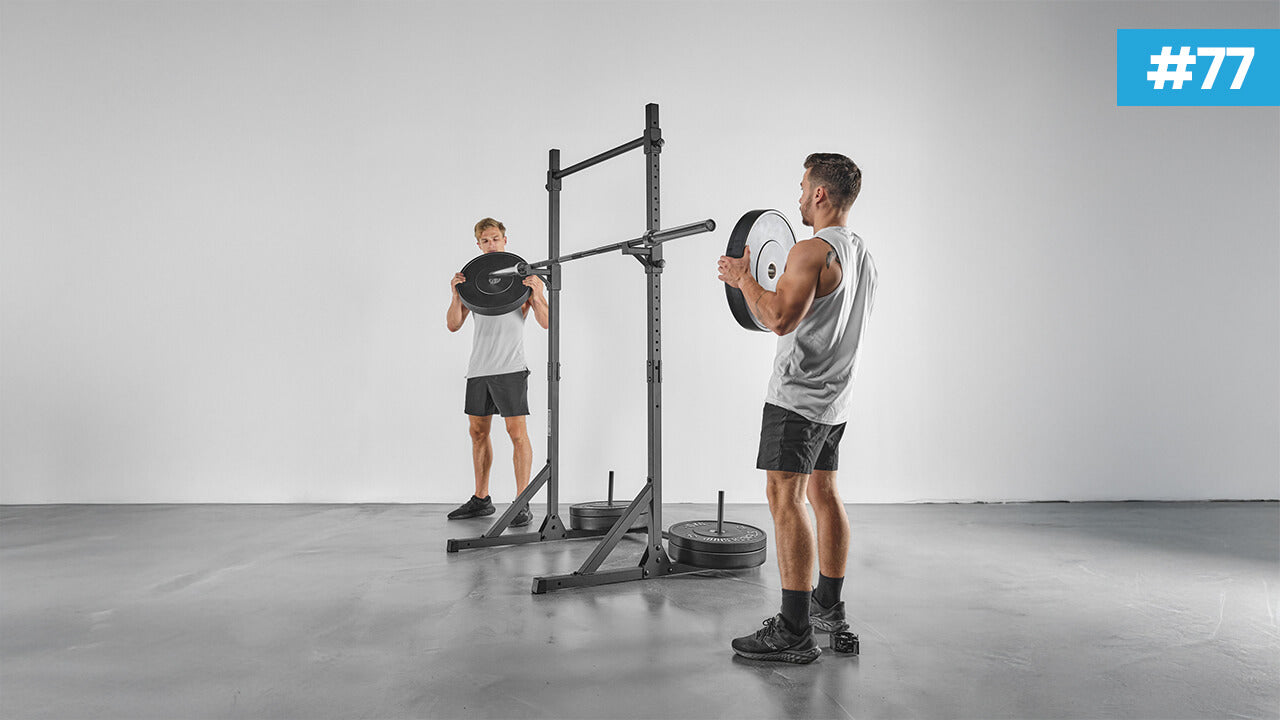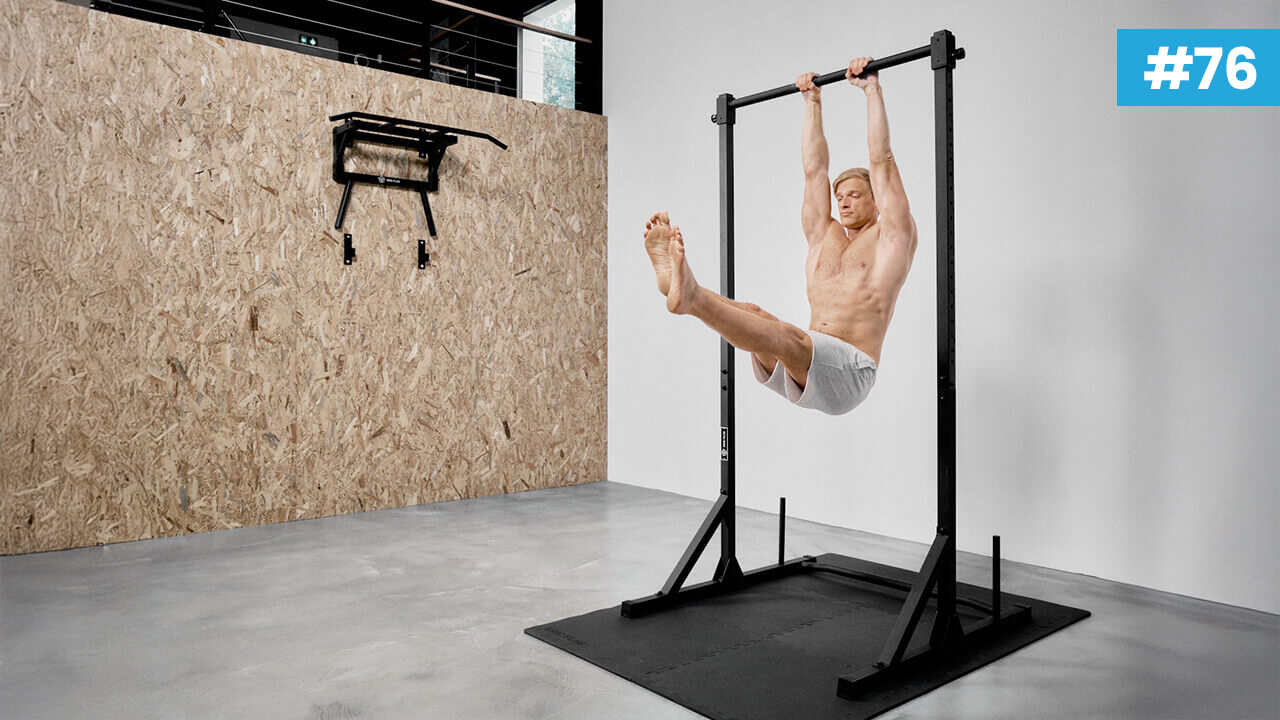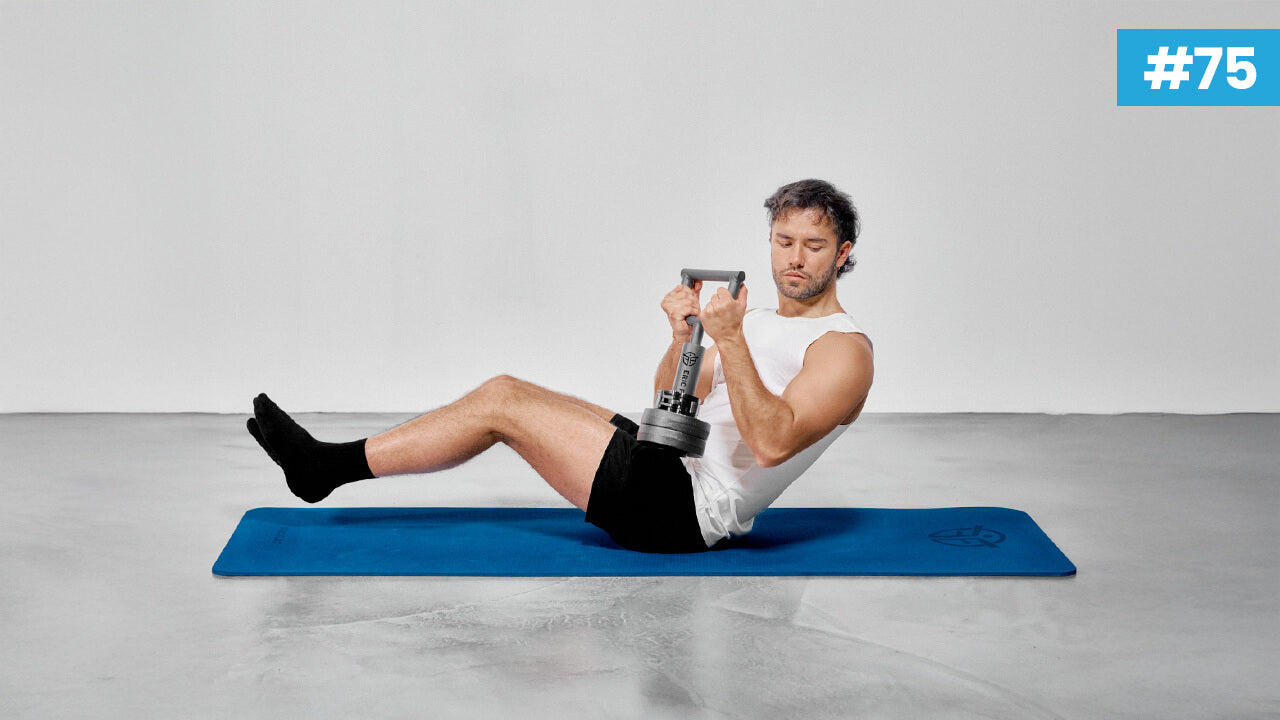How to make the Dragon Flag Our tips
The dragon flag is an advanced bodybuilding exercise popularized by Bruce Lee, and is ideal for strengthening the abdominal muscles. This movement requires complete body control and a high level of fitness, so is not recommended for novices.
With patience and methodical progression, learning the dragon flag is within everyone's reach. This article will guide you through the learning stages, complementary exercises, and provide tips for perfect execution.
Let's go ! 🔥
All about the Dragon Flag
Proper execution of the dragon flag
To perform the dragon flag optimally, lie on your back and grip a stable support behind you, such as a weight bench, post or squat rack. Lift your hips, transferring your weight to your shoulders, then raise your feet, legs and torso to create a straight line.
It's essential to keep the abdominals and glutes contracted throughout the exercise. Apart from the upper back and shoulders, no part of your body may touch the ground.
You can also do this movement in negative: raise your legs, then control the descent and stay in the dragon flag position for as long as possible.
What muscles are involved in Dragon Flag?
The dragon flag mainly targets the abdominal muscles: rectus abdominis, obliques and transversus abdominis. These muscles stabilize the torso and legs in suspension.
The hip flexors, shoulders, triceps and dorsalis major help maintain balance. The gluteus maximus supports the pelvis, while the quadriceps tense the legs.
Learn the dragon flag

Single-Leg Dragon Flag
Prerequisites
Before you start, it's useful to have good strength and sheathing!
Mastering the hollow body position, which strengthens the abs and correctly positions the pelvis, is a plus. Try holding the hollow body for 30 seconds before starting.
Exercises like pull-ups and Australian pull-ups build the strength needed to stabilize your body and counteract leverage.
Dragon flag progressions
The dragon flag requires a step-by-step progression:
- Tuck Dragon Flag: Bend your knees towards your chest. This variation simplifies control of the movement.
- Half Lay Dragon Flag: Partially straighten your legs to increase the difficulty slightly.
- Single-Leg Dragon Flag: One leg remains bent or straight, the other raised, requiring more stability.
- Negatives: Work on the descent phase by controlling your legs and torso, then climb back up with a simpler variation.
Once you feel comfortable, try some advanced progressions:
- Straddle Dragon Flag: Spread legs.
- Full Dragon Flag: Body perfectly aligned, legs straight.
These steps develop strength, sheathing and stability for successful dragon flag.
Complementary exercises to strengthen the abdominal muscles

To progress effectively in the dragon flag, it's essential to strengthen the abdominal muscles. Here are a few complementary exercises that may help:
- Hollow Body Hold It strengthens the abdominal muscles, improves muscle tone and the stability.
- Knee lifts: Target the lower abs and obliques and strengthen the abdominal muscles.
Conclusion
The dragon flag is an excellent exercise for strengthening the abdominal muscles, improving stability and developing athletic performance.
To master it, follow adapted progressions such as the tuck dragon flag or negatives, and strengthen your muscles with complementary exercises such as the hollow body.
By making it part of your routine, you'll gain strength, stability and confidence. Remain patient, persevere and let the dragon flag transform your physical condition.
See you soon for a new article 💪
Eric Flag .







Leave a comment
This site is protected by hCaptcha, and hCaptcha's Privacy Policy and Terms of Service apply.